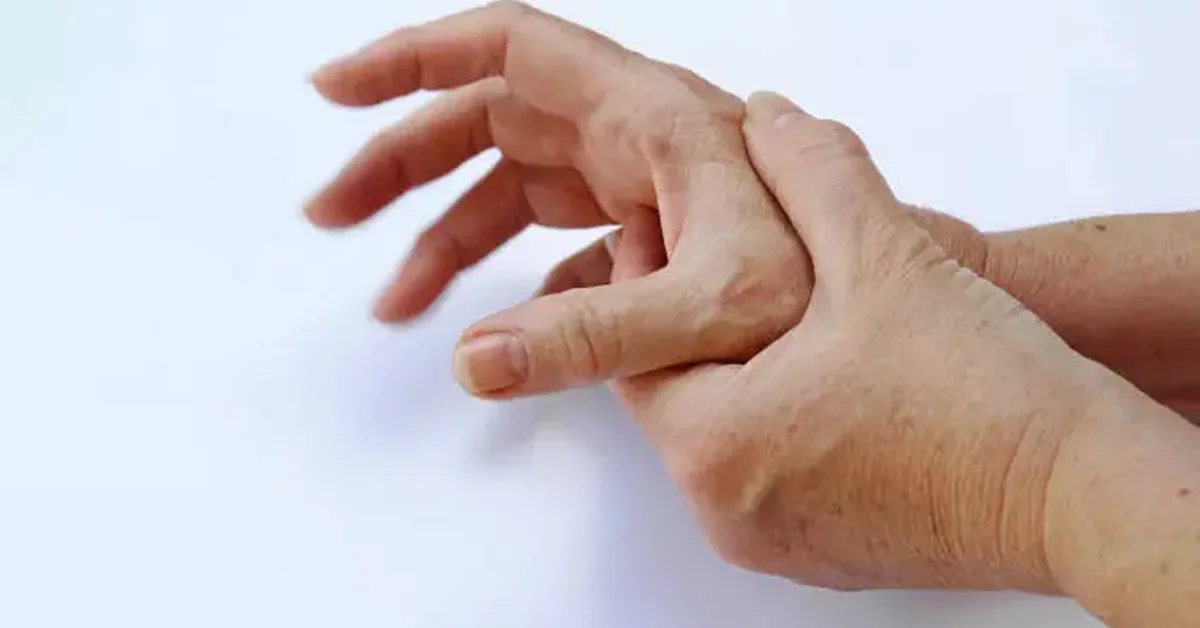Thumb twitching is a common but often puzzling experience. You may feel your thumb suddenly spasm or twitch involuntarily, leaving you wondering why it’s happening and what you can do about it. This involuntary muscle movement is usually harmless but can sometimes indicate underlying issues that need attention.
In this comprehensive article, we will explore the common causes of thumb twitching, how to identify when it’s serious, and practical quick fixes you can try at home to ease the twitching. Let’s dive in!
TRENDING
Why You Feel Pain In Abdominal When Coughing: Explained
What Is Thumb Twitching?
Thumb twitching’s refers to involuntary, repetitive muscle spasms or movements in the thumb. These twitches can be minor and infrequent or more persistent and disruptive. The sensation can range from a subtle flicker to noticeable jerks.
Muscle twitches, also known as fasciculations, are caused by spontaneous contractions of muscle fibers. They can happen anywhere in the body but often occur in hands, feet, and facial muscles.
Common Causes Of Thumb Twitching
Muscle Fatigue or Overuse
One of the most frequent reasons for thumb twitching is muscle fatigue. If you use your thumb excessively — such as typing, texting, gaming, or repetitive manual work — the muscles and tendons can become overworked and irritated.
Stress and Anxiety
Stress triggers the release of adrenaline and other hormones that can cause muscle spasms, including thumb twitching’s Anxiety can heighten awareness of these minor twitches, making them feel more frequent or severe.
Nutritional Deficiencies
Certain nutrient deficiencies, especially magnesium, potassium, and calcium, are linked to muscle twitching. These minerals play a crucial role in muscle function and nerve signaling.
Dehydration
Lack of adequate hydration can disrupt the electrolyte balance, leading to muscle cramps and twitching.
Caffeine or Stimulant Overconsumption
Too much caffeine or other stimulants can overstimulate the nervous system, causing muscle twitching.
Nerve Compression or Irritation
Compression of nerves in the wrist or hand, such as in carpal tunnel syndrome, can lead to muscle twitches or spasms in the thumb.
Medication Side Effects
Some medications, especially those affecting the nervous system, may cause muscle twitching as a side effect.
Underlying Medical Conditions
In rare cases, persistent thumb twitching can be a sign of neurological disorders such as multiple sclerosis, peripheral neuropathy, or motor neuron disease. If accompanied by weakness or numbness, it requires medical attention.
When To Worry About Thumb Twitching?
Most thumb twitches are benign and resolve on their own. However, seek medical advice if you experience:
Persistent twitching lasting more than a few weeks
Muscle weakness or loss of coordination
Numbness or tingling along with twitching
Twitching spreading to other parts of the body
Associated symptoms like pain or swelling
These could indicate nerve damage or other serious conditions.
Quick Fixes For Thumb Twitching
Rest and Avoid Overuse
If your thumb twitching’s is related to overuse, give your hand a break. Avoid repetitive thumb movements for some time and practice gentle stretches.
Manage Stress
Try stress reduction techniques such as deep breathing, meditation, or yoga. Reducing anxiety can lower the frequency of twitches.
Stay Hydrated and Maintain Balanced Nutrition
Drink plenty of water throughout the day and eat a balanced diet rich in magnesium (nuts, leafy greens), potassium (bananas, sweet potatoes), and calcium (dairy, fortified plant milk).
Limit Caffeine Intake
Cut down on coffee, energy drinks, and other stimulants that may be aggravating muscle twitching.
Gentle Thumb and Hand Exercises
Perform simple thumb stretches and hand exercises to relieve muscle tension and improve blood flow.
Warm Compress
Applying a warm compress to the thumb can relax the muscles and ease twitching.
Correct Ergonomics
Adjust your workstation setup to reduce strain on your thumb and wrist, especially if you spend long hours typing or gaming.
Preventive Tips To Avoid Thumb Twitching
Take regular breaks during repetitive thumb activities
Stay well-hydrated and eat a nutrient-rich diet
Manage stress through regular exercise and relaxation techniques
Maintain good posture and ergonomics
Avoid excessive caffeine and stimulant intake
Understanding The Science Behind Thumb Twitching
Muscle contraction is controlled by electrical signals sent from nerves. When these signals become irregular or overactive, the muscle fibers twitch involuntarily. This can happen due to fatigue, irritation, or disruption of normal nerve impulses.
The thumb, controlled mainly by the median and radial nerves, is highly active in everyday tasks, making it prone to twitching when stressed or overworked.
Summary
Thumb twitching is usually a harmless symptom caused by overuse, stress, nutritional imbalances, or mild nerve irritation. Quick fixes include rest, hydration, balanced nutrition, stress management, and ergonomic adjustments. However, if twitching is persistent or accompanied by other neurological symptoms, consulting a healthcare professional is important.
By understanding the causes and applying simple remedies, you can reduce or eliminate thumb twitching’s and maintain healthy hand function.
ALSO READ: Body Cream vs Lotion: Key Differences For Ultimate Skin Hydration
FAQs
What is thumb twitching?
Thumb twitching is an involuntary, repetitive muscle spasm or movement in the thumb. It usually occurs due to muscle fatigue, stress, or nerve irritation.
Can dehydration cause my thumb to twitch?
Yes, dehydration can cause electrolyte imbalances which may lead to muscle twitching, including in the thumb.
How long does thumb twitching usually last?
Most thumb twitches are temporary and resolve within a few hours to days. If it lasts longer than a few weeks, consult a doctor.
Can thumb twitching be a sign of carpal tunnel syndrome?
Yes, nerve compression in carpal tunnel syndrome can cause twitching, numbness, or weakness in the thumb.
Are there any exercises to stop thumb twitching?
Yes, gentle stretching and hand exercises can help relieve muscle tension and reduce twitching.











